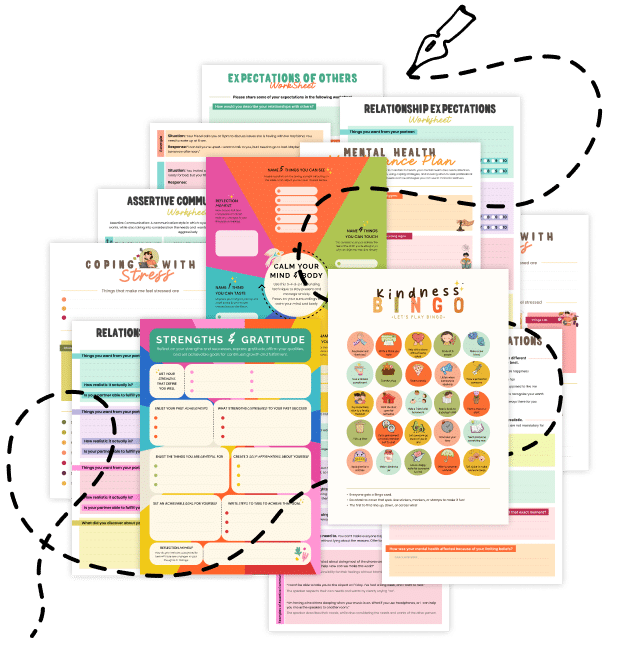20 Things You Should Know About Affective Forecasting
Discover what affective forecasting is and how it shapes your expectations, emotions, and decisions. Explore 20 key insights, common forecasting mistakes, and practical tips to improve emotional predictions and overall happiness.
1. What Is Affective Forecasting?
Affective forecasting refers to the process of predicting how future events will make you feel emotionally. Essentially, it’s your ability to anticipate your emotional responses before they actually occur.
2. Why Affective Forecasting Matters
We constantly make choices—career decisions, relationships, purchases—based on predictions of future happiness or distress. Understanding affective forecasting helps you make better-informed decisions.
3. Common Forecasting Mistakes
Humans frequently make errors in emotional predictions. We often overestimate how happy positive events will make us or how devastating negative ones will feel, leading to inaccurate expectations.
4. The Impact Bias
A key error in affective forecasting is the impact bias, where people overestimate the emotional impact (intensity and duration) of future events, both good and bad.
5. The Role of Adaptation
We often underestimate our ability to adapt emotionally—known as hedonic adaptation. Even after significant life events, our emotional state tends to stabilize more quickly than anticipated.
6. Focalism: Narrowing Our Perspective
Focalism occurs when we focus too heavily on a single event without considering other factors influencing our future happiness. This narrow focus can distort our emotional predictions.
7. Immune Neglect: Underestimating Resilience
Immune neglect refers to our tendency to underestimate our emotional resilience. People often overlook their innate psychological coping mechanisms that help them bounce back from negative experiences.
8. Affective Forecasting in Daily Life
Everyday decisions—from buying a new phone to planning a vacation—are based on affective forecasts. Improving your accuracy can lead to greater satisfaction with your choices.
9. Decision-Making Implications
Poor affective forecasting can lead to misguided decisions. For example, believing that material possessions will bring long-lasting happiness often leads to disappointment.
10. Improving Emotional Predictions
Becoming aware of biases like impact bias and focalism allows you to recalibrate your expectations. Consider past experiences to better understand how future events might truly affect you.
11. Practicing Perspective-Taking
Imagining how someone else might feel in a similar situation can help improve the accuracy of your own emotional predictions, broadening your understanding of potential outcomes.
12. Importance of Mindfulness
Mindfulness practices—being present and non-judgmental—can help you recognize biases in your affective forecasting, leading to more realistic expectations about future emotional states.
13. The Role of Memory
Our memories of past experiences influence future emotional predictions. However, memories are often distorted, making accurate affective forecasting challenging without careful reflection.
14. Cultivating Emotional Intelligence
Developing emotional intelligence (EQ) can improve affective forecasting by enhancing your ability to understand and manage your emotions, as well as accurately predict your emotional responses.
15. Seek Diverse Opinions
Getting input from others who have experienced similar events can provide insights into your potential emotional reactions, helping you temper overly optimistic or pessimistic forecasts.
16. Balancing Optimism and Realism
Being optimistic is healthy, but realistic optimism—acknowledging both potential positives and negatives—leads to more accurate forecasts and better emotional outcomes.
17. Reflective Journaling
Journaling about your expectations before an event, and your actual feelings afterward, helps you recognize forecasting patterns and refine your emotional predictions over time.
18. Aligning Expectations with Reality
Aligning your expectations closer to reality doesn’t mean lowering your standards. Instead, it means setting yourself up for sustained emotional health by anticipating more accurately.
19. Research-Based Insights
Psychological research consistently demonstrates that people recover emotionally faster from negative events and adapt quicker to positive ones than they predict—something worth considering when facing significant life changes.
20. Related Topics to Explore
- Hedonic Adaptation: Understanding why happiness levels stabilize after life changes.
- Mindful Acceptance: Embracing emotional experiences without judgment.
- Cognitive Defusion: Techniques to distance yourself from unrealistic expectations.
- Adaptive Confidence: Developing realistic self-belief and emotional stability.
Quick Tips for Improving Affective Forecasting
- Remember Past Experiences: Reflect on similar past events to predict your emotional response accurately.
- Consider Multiple Outcomes: Avoid focusing solely on the best- or worst-case scenarios.
- Talk to Others: Seek advice from people who’ve experienced similar situations.
- Practice Mindfulness: Stay aware of your emotional biases and tendencies.
- Adjust Your Expectations: Aim for realistic optimism to balance hopefulness and realism.
Affective Forecasting significantly impacts decision-making, expectations, and overall life satisfaction. By recognizing common biases like impact bias and focalism, and practicing strategies such as mindfulness and reflective journaling, you can enhance your emotional predictions. Ultimately, improving your affective forecasting allows for more fulfilling experiences, smarter choices, and greater emotional resilience.
Share this article with anyone interested in better understanding their emotional predictions and enhancing their decision-making skills. Embrace affective forecasting, and empower yourself to make choices that truly align with your emotional well-being and happiness.

